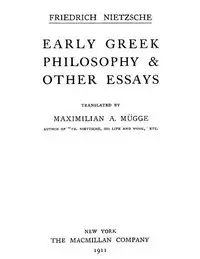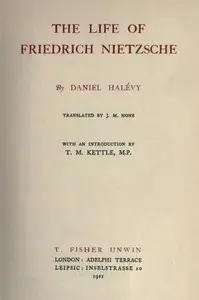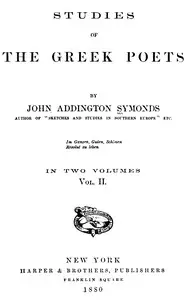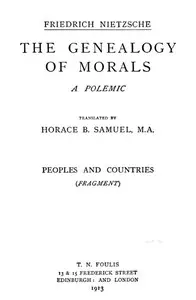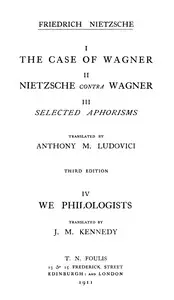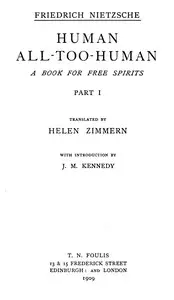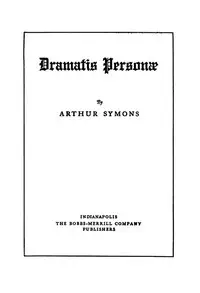"The Birth of Tragedy; or, Hellenism and Pessimism" by Friedrich Wilhelm Nietzsche is a thought-provoking investigation into the roots of Greek tragedy, highlighting the contrasting forces of Apollo and Dionysus. Nietzsche argues that the rational, ordered Apollonian spirit and the wild, passionate Dionysian spirit are both crucial for art and human life. Drawing on his own early experiences and influences such as Hellenism, Schopenhauer, and Wagner, Nietzsche analyzes the tensions between beauty and chaos, suggesting that Greek tragedy came from blending them. Through this, the work looks at pessimism and its connection to creating art, proposing a complex relationship between joy, pain, and the vital role of art in human existence, providing a foundation of the intricate exploration of Greek aesthetics, encouraging readers to consider the profound effects of tragedy as a reflection of life’s dual nature.
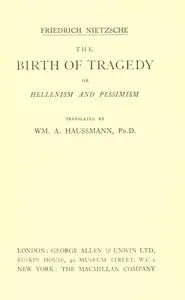
The Birth of Tragedy; or, Hellenism and Pessimism
By Friedrich Wilhelm Nietzsche
In a world of beauty and chaos, discover how tragedy is born from the clash of reason and passion within the human soul.
Summary
About the AuthorFriedrich Wilhelm Nietzsche was a German classical scholar, philosopher, and critic of culture, who became one of the most influential of all modern thinkers. He began his career as a classical philologist before turning to philosophy. He became the youngest person to hold the Chair of Classical Philology at the University of Basel in Switzerland in 1869, at the age of 24, but resigned in 1879 due to health problems that plagued him most of his life; he completed much of his core writing in the following decade. In 1889, at age 44, he suffered a collapse and afterward a complete loss of his mental faculties, with paralysis and probably vascular dementia. He lived his remaining years in the care of his mother until her death in 1897, and then with his sister Elisabeth Förster-Nietzsche. Nietzsche died in 1900, after experiencing pneumonia and multiple strokes.
Friedrich Wilhelm Nietzsche was a German classical scholar, philosopher, and critic of culture, who became one of the most influential of all modern thinkers. He began his career as a classical philologist before turning to philosophy. He became the youngest person to hold the Chair of Classical Philology at the University of Basel in Switzerland in 1869, at the age of 24, but resigned in 1879 due to health problems that plagued him most of his life; he completed much of his core writing in the following decade. In 1889, at age 44, he suffered a collapse and afterward a complete loss of his mental faculties, with paralysis and probably vascular dementia. He lived his remaining years in the care of his mother until her death in 1897, and then with his sister Elisabeth Förster-Nietzsche. Nietzsche died in 1900, after experiencing pneumonia and multiple strokes.


